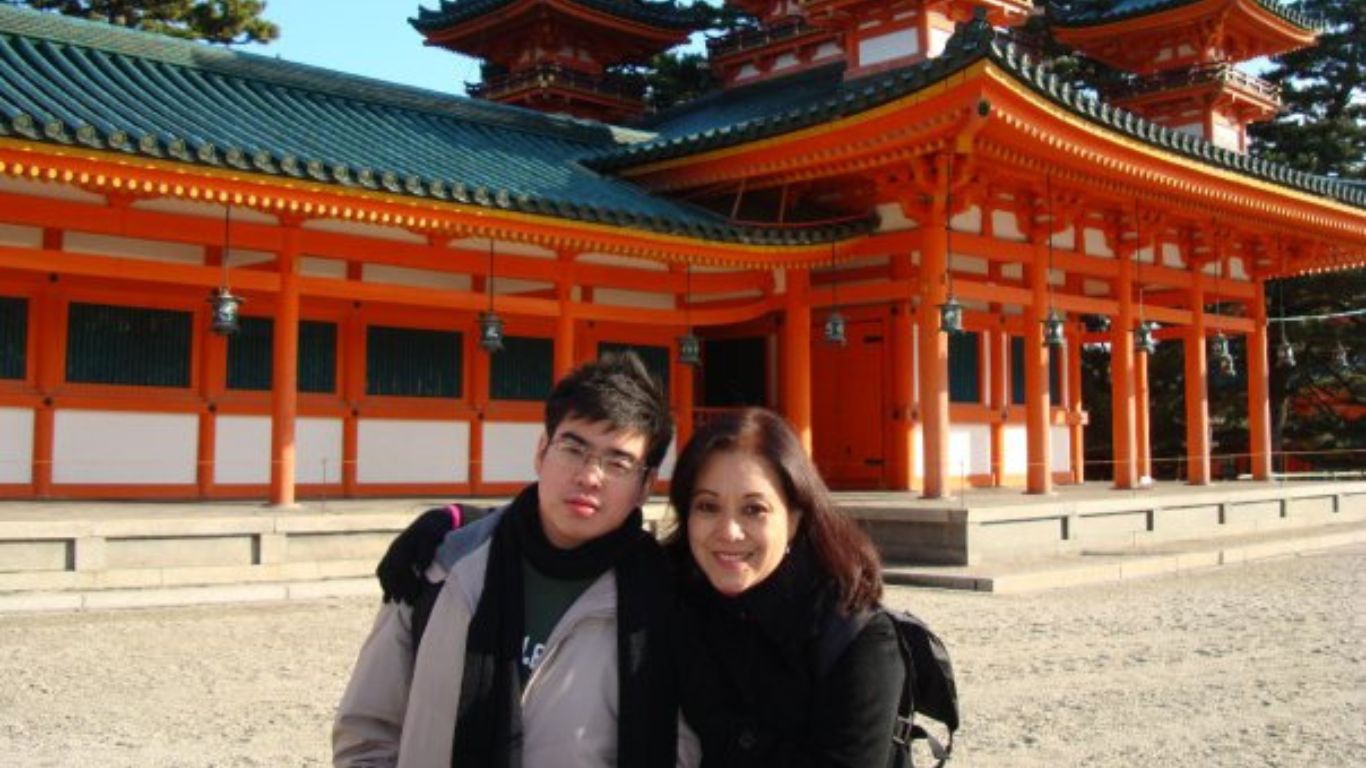My Journey Through Grief: Finding Happiness After My Mom’s Passing
November 27, 2023. This was the day that shook my world. My dear mom passed away.
I was never the same again – for better or worse. Coping with grief while striving to have a “normal life” was a monumental challenge for my next seven years. In this post, I will discuss my struggles, strategies, and life lessons on coping with grief for my mom.
Growing Up With Mom: I’m A Proud Mama’s Boy
Growing up, I was very close to both my parents. I was never ashamed to be called a “Mama’s Boy.” Some children, with their parents, wanted to look cool in front of their friends. They didn’t want a kiss from their parents to look “grown up.”
I was not one of them. Even as an adult, I was never ashamed to kiss my mom on her cheek, when she woke up in the morning, before she went to bed, and when she came home from work, even in public.
There were times when we fought, but I resumed my daily ritual after we cooled off.
Mom’s Death Was A Stab to My Heart

Two weeks before she died, she complained that her stomach area was very painful. Over our family breakfast, “I need to see a doctor before it’s too late,” she announced. “My friend died because she didn’t have her diagnosis in time.” At the hospital, her doctor ordered her to take some tests. After discovering the results, she was immediately confined. She had a large infection in her colon.
“There’s nothing to worry about. The surgeons need to cut my colon, remove the infection, and stitch me together. This is normal among people in their 50s.”
She was scheduled to have her surgery three days after her diagnosis. We even celebrated her birthday in the hospital, while waiting for surgery.
Her disease worsened before her scheduled surgery. Her infection burst and she had sepsis. She was rushed to the operating table. Her surgery was a success. All we could do was hope and pray.
But GOD had other plans. Her diabetes insipidus, a rare medical condition that makes her always thirsty, complicated her recovery. It caused chemical imbalances and lead to her death.
At 8 am, November 27, I woke up to my dad’s call. Mom was fading. My brother and I rushed to the hospital in disbelief. I collapsed on the floor when my dad told me the devastating news. Mom was gone.
My family and I entered my mom’s room. For the last time, I hugged her tightly, caressed her hair, and kissed her forehead and cheek. “Good night, mom. I love you,” I said.
My First Year Of Grief Was The Hardest

Burying Mom was not the end of my anguish. It was the start.
My first year without mom was the most painful and hardest to cope with.
She passed away 3 days before my sister’s birthday, 22 days before my birthday, 29 days before Christmas, and 35 days before New Year’s Day.
Dad built our house. And Mom built our home.
From then on, every moment, special occasion, and celebration was spent without her.
Christmas felt empty. Before Christmas, I missed her nagging on helping her set the Christmas tree. I missed her asking me to help her in the kitchen. There was no Christmas feast that was filled with her recipes. We attempted to cook her recipes with mediocre results.
I hated my first Mother’s Day with her. At mass, all the mothers went up to the front priest to be blessed and returned their family with hugs and kisses.
I had no mom to kiss or hug. My decades-old ritual of kissing on her cheek ended.
On her first birthday in heaven, my family bought her a cake. But she was not here to blow her candles.
How I Coped with Grief
This was the largest paella cooked and served in Metro Manila.
If left unchecked and not processed correctly, grief can overwhelm and destroy you.
- Continue rituals with your loved one. And slowly wean away.
In the first six months of grief, my family and I set the table for the whole family, which included mom.
We kept her seat empty and placed a plate, spoon, and fork for her. Afterwards, my dad decided that
we needed to let go of this ritual. We then had new seating arrangements and stopped setting the
table for her.
- Have a real relationship with GOD. Let Jesus lead you out of grief and despair.
For many years, I was struggling with depression and anxiety. I also lost my direction in life. I couldn’t pull myself out because my negative emotions were too strong.
So I prayed to GOD to help me. At first, I treated Jesus as a genie. I wished for him to take away my pain. That did not work.
Eventually, I viewed Him as my fortress. Whenever I was in emotional or financial distress, I banged on His doors to let me in.
A few years later, I viewed Jesus as a friend and therapist. I shared all my despair, anger towards him, and my dreams. I asked GOD to help me overcome depression. Little by little, I felt the heavy cloud lift away from me.
Now, GOD is my king (and friend). As a way of paying it forward for His help and of service to Him, I am sharing with you how I left behind my grief.
- Keep talking with your loved one.
Even though she was no longer with us, I continued to talk to her, in my thoughts – and sometimes through whispers. I would tell her about my day or even ask for her help on making decisions.
- Talk it out with your friends.
Among my close friends, I was the first to lose a parent. Though none of my friends could relate to my suffering, they were understanding a patient with me. Over a few drinks, I would tell them all about my mom and what I missed about her.
- Seek help from relatives, mentors, and grief counselors.
At first, I could not seek help from my aunts and uncles because we were all processing our own grief.
Aristeo Tengco, my mom’s good friend, approached me in my darkest days. With the help of GOD, he consoled and mentored me to lead me out of despair. He understood my situation because he lost his mother, over a year before I lost mine. He mentored and gave me activities to keep my mind off my pain.
- I made myself more productive.
To keep me from wallowing in pain, Aristeo invited me to start SDGchannel.com with him. He tasked me to write articles for our blog. One of the writing exercises I did was listing down all the things I missed and loved about my mom.
Through his mentorship, he inspired me to share Real Happiness, through positive and inspiring stories and content.
I picked myself up and began with a positive attitude.
The Stages of Grief Are Not Linear.
The stages of grief are nothing new. But it was real and raw to me the moment my mom passed away.
This is a misnomer because a stage implies that grief is a process.
Grief is an experience because the emotions I felt were not linear nor had a fixed period. The experiences occurred in a random order, overlapped with each other, and consistently repeated.
I experienced the following stages of grief.
- Denial: This is when a person refuses to accept the reality of the loss and tries to avoid or minimize the pain.
In my first year of grief, I became a workaholic. When I worked with Aristeo to build SDGchannel.com, I used our time and effort to shove my pain in my mental closet. I worked long hours to forget my pain to suppress my bad memories. I also went out to drink with my friends and came home late at night. Thankfully, I did not become an alcoholic.
- Depression: This is when the person feels sad, hopeless, guilty, or worthless because of the loss and may withdraw from others or lose interest in life.
I was in shock for the first six months after my mom’s death. I worked for her at our family business. I could not function at the office. My desk was beside her office. Missing her laugh in her room, the clacking of her high heeled shoes on the hard floor, and her nagging me to go home with her was gut wrenching. Often, I snuck into the bathroom and cried until I had no tears left for the day.
- Anger: This is when the person feels angry at the situation, themselves, others, or even God for causing the loss or not preventing it.
My first 4 years were filled with suppressed anger. I was spiteful of people writing Facebook posts about their mom on Mother’s Day. I easily lashed out at my dad and siblings. Worst of all, I was at war with GOD. I even blamed Him for being selfish because the whole universe literally revolves around Him. The Almighty Father chose not to save my mom.
- Bargaining: This is when the person tries to negotiate or make a deal with a higher power or fate to reverse or postpone the loss.
While lowering my mom into her grave, I dropped flowers on her coffin. As I was doing this, I promised that I would grow my inheritance from her through business. My first business failed miserably, which added more fuel to my anger.
On some days, I would read the Bible as a plea bargain in exchange for my mom. I promised to be a “good boy” to bring back my mom.
- Acceptance: This is when the person comes to terms with the loss and learns to live with it.
Acceptance was the hardest and longest stage for me to reach. For seven years, not once did I accept her passing. I achieved acceptance after I had grief counseling at Tanseco, S.J. Center for Family Ministries (RMT-CEFAM). My grief counselor helped me unpack grief and settle my regrets.
After a few sessions, I offered mom to Jesus. I surrendered to Him. Then I found peace.
My Life Lessons From Grief
From the left: my mom, my grandfather Charlie (her dad), and me.
- You cannot force yourself out of grief. It is impossible to skip grief with a snap of a finger.
It is impossible to wake up one day and decide to stop grieving. There is no way around this. You need to experience your emotions head on. The more you suppress your negative emotions, the longer you prolong your grieving. The storm will eventually pass.
- Grief is an experience that needs to be processed productively.
Though you cannot control your emotions, you can control your actions. You need to process your grief by doing productive things. Talk it out with friends or play sports. It is ok to have a few drinks. But if you catch yourself having self-harming thoughts or are becoming an alcoholic, speak with a grief counselor immediately.
- You have your timetable for grief.
Each person’s way of processing grief is unique. Do not be pressured to stop grieving on someone else’s terms. Setting a deadline on when you should stop grieving will give you unnecessary stress, which leads to depression.
When you are sick, you don’t tell yourself that you should get well by a specific date. You are ready when you are ready.
- Offer all your grief to GOD.
You cannot pull yourself out of grief alone and with your own power.
Your healing starts when you surrender your loved one and yourself to GOD. Losing your loved one is beyond your control. To help with your healing, you need to accept that GOD is in full control of your situation. You will need to cling to Him as tightly and as often as you can.
For years, I prayed the rosary, listened to worship music, and had real conversations with Jesus. In the first few years, I was filled with anger when talking to Him. In the fourth year, my tone shifted to begging Him to console me because I felt so alone. In the last years, I asked Him to guide me out of my darkness.
- “There are really only two stages of grief, … who you were before and who you are after.” – Ted Rynearson
As mentioned earlier, the Stages of Grief are experiences, not a step-by-step process.
Your grief is your transformation into a new person for the new chapter in your life.
Looking back, I experienced some silver linings from my own grieving process.
I enjoy more of the little things.
I learned to run to GOD whenever I’m in pain.
I now value my relationship with family and friends.
I learned how to console others who are in grief.
I hope my story helps navigate your journey in grief.
This storm will pass. Just be patient and journey with GOD.
Let’s Share Real Happiness!






0 Comments